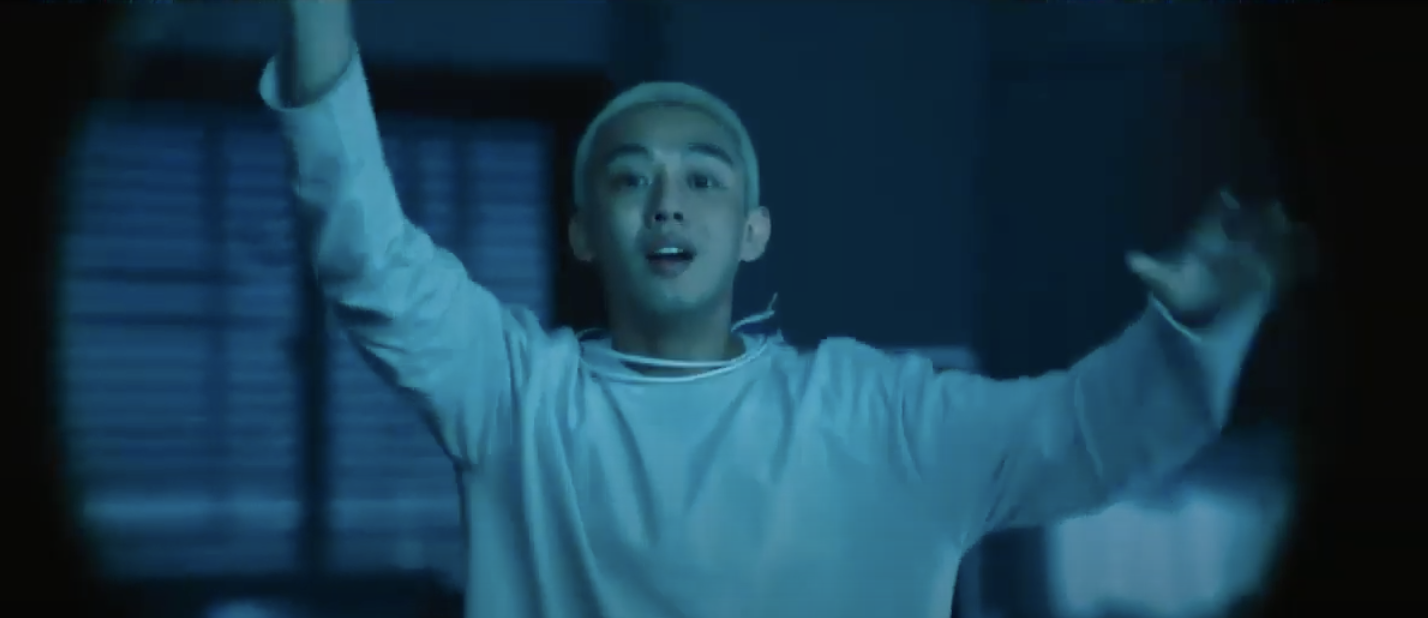What to Watch Verdict
'#Alive' finds drama and tension within one man's apocalyptic imprisonment while zombies are largely kept locked outside, only posing a threat while society crumbles and we become our worst enemies.
Pros
- +
📱Isolation doesn't grow stale.
- +
📱Zombies used sparingly.
Cons
- -
📱Lots of down time.
- -
📱Zombies used sparingly.
When an on-screen zombie outbreak occurs, storytellers have a choice to make. Do you embrace a metropolis overrun and engage an action-centric route? Hold up inside, say, a mall and throttle into tower defense simulations? Or, as Il Cho does in #Alive, do you lock your main character in containment to embrace the sorrow of isolation surrounded by the stank of decay? Confinement makes for a much quieter, strategic survival arc, but as The Walking Dead showed - before overstaying its welcome - and #Alive proves (alongside countless others), there’s as much terror in dwindling supplies than guns-akimbo shooting galleries of the undead.
Jun-u (Yoo Ah-In) lives a streaming gamer’s life glued to his multi-monitor computer station until, one day, he wakes in his stories-high apartment to an outbreak underway. He can’t reach his family, technology becomes useless, and the government urges everyone to bolt their doors shut tight. Days pass as Jun-u watches his food rations deplete, but infected cannibals outside make escape impossible. Jun-u is about to commit the ultimate sin when a neighbor, Yu-bin (Park Shin-Hye), catches his attention. Together, with newfound determination, they decide it’s their destiny to live. Now they need a foolproof plan.
Cho and co-writer Matt Naylor are quick to address Jun-u’s relationship with devices and internet dependencies. Jun-u draws connections to Kondo Tatsumi from Max Brooks’ World War Z novelization, as a screen addict now coping with pandemic horrors sans Wifi, online friendships, or social media sympathy. There’s even a humorous instance where Jun-u engages a government issued radio app on his phone that requires a headphone jack input for antenna reception, but all our hero owns are state-of-the-art wireless listeners. When operational, technology holds all the answers. When obsolete and non-functional? Those who rely on their Googles or Siris as a guidance system are utterly, hopelessly unprepared.
So what does Jun-u do? What many might, and that’s where Cho finds his film’s relevance. With minimal groceries stashed for sustained nutrition (buying food for one sucks), Jun-u starts chugging his father’s whiskey to pass the time. It’s a human coping reaction, which in turn exacerbates his psychological instability. As someone who’s been quarantining without roommates during this whole COVID-19 hellscape, Jun-u’s fearful embrace of solitude exhibits what happens when we feel like the last person on Earth. As he stumbles around his apartment, forgoing rationale for impulse, we see a man desperate for any signs of relief. Dangling from his feet-wide apartment deck, clinging to the railing with one hand and an outreached selfie stick in the other to ping one single service bar on his smartphone.
Then Yu-bin arrives.
From here, #Alive finds its message. Before communications break down, Jun-u receives a voicemail from his mother, demanding that he stay alive. When Yu-bin catches Jun-u’s attention with her laser pointer, those words regain their power. Jun-u holds strength in community, meaning in camaraderie, and the two use hacks like out of The Goonies to keep their relationship blossoming (walkie talkies, a rope from deck-to-deck for present passing, etc.). It’s not a spotless love story, but Cho finds this heartfelt midway revitalization and a more dramatic angle to keep his characters fighting forward through an otherwise dismal existence.
The point of #Alive isn’t to brawl, but evade hazards and use smarts to outwit the sprinting dead. These are essentially Train To Busan zombies, defined by freakish agility and bloodshot eyes to signify viral spread. Jun-u and Yun-bin both rig traps to defeat a few zombies who sneak their way into each’s suburban fortresses, but there’s more stress put on Jun-u’s stealth than brute force. Less Snyder, more Romero.
The latest updates, reviews and unmissable series to watch and more!
Effects, even when it comes to victims who do fall prey, aren’t particularly gruesome but zombie threats all look proper menacing. To boot, zombie memories retain small tidbits from their living consciousness. Like say, a zed-head firefighter who attempts to climb into Yu-bin’s home using a first failed rope toss that never reaches Jun-u’s sliding deck doors. Cho attempts to heighten the efficiency of his horde, even if they’re still just bloodthirsty animals. A quality that ponders the cognitive recognition of rotten brains.
Anchored horror narratives such as this exist and are familiar. Something like France’s The Night Eats The World. South Korea’s #Alive doesn’t feel like a reinvention, nor does it epitomize this subgenre, but that’s not its selling point. Il Cho focuses on how dystopian loneliness can easily dissolve humanity, thrusting humans into a world that knows no modern advantages (also, zombies). You might yelp a few times as monsters lunge from shadows, sympathize with a character who becomes his own enemy, and pray our data plans never disappear. Even more so, you’ll find an impassioned plea always to keep pressing onward, no matter the stakes, which helps issue a sense of earnestness that other slay-or-die zombie titles seem to devalue these days.
You can watch #Alive on Netflix now.
Matt Donato is a Rotten Tomatoes approved film critic who stays up too late typing words for What To Watch, IGN, Paste, Bloody Disgusting, Fangoria and countless other publications. He is a member of Critics Choice and co-hosts a weekly livestream with Perri Nemiroff called the Merri Hour. You probably shouldn't feed him after midnight, just to be safe.


